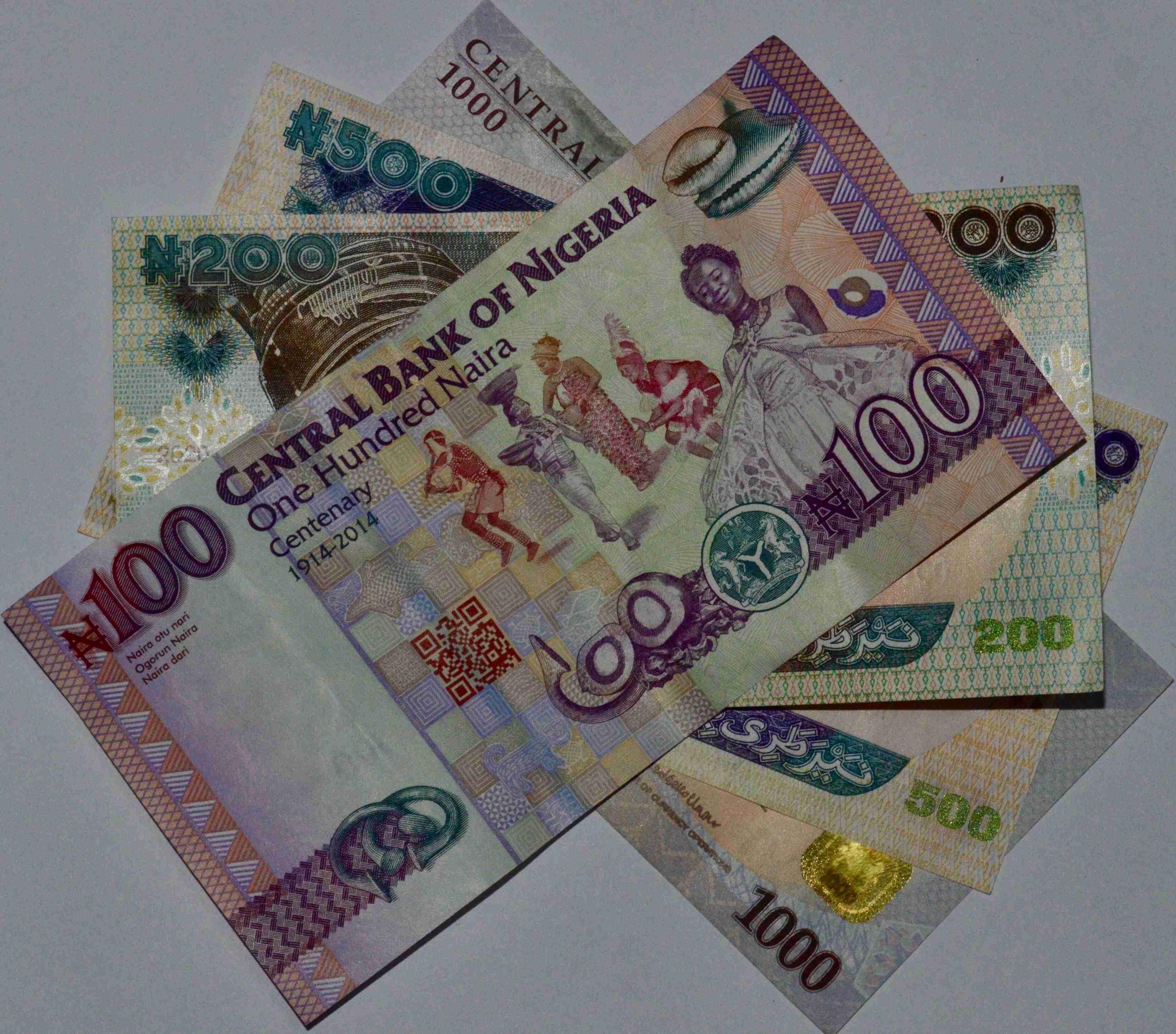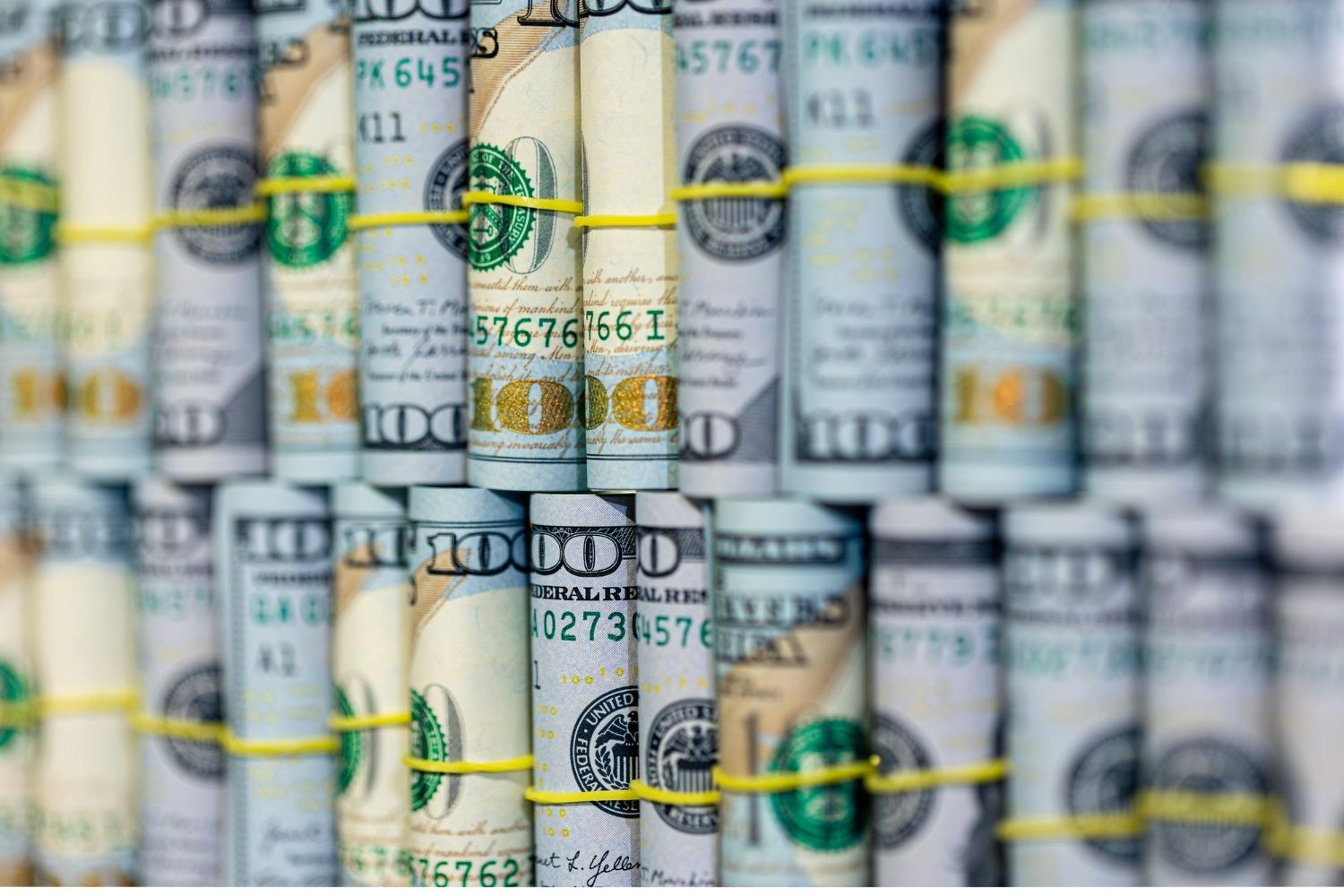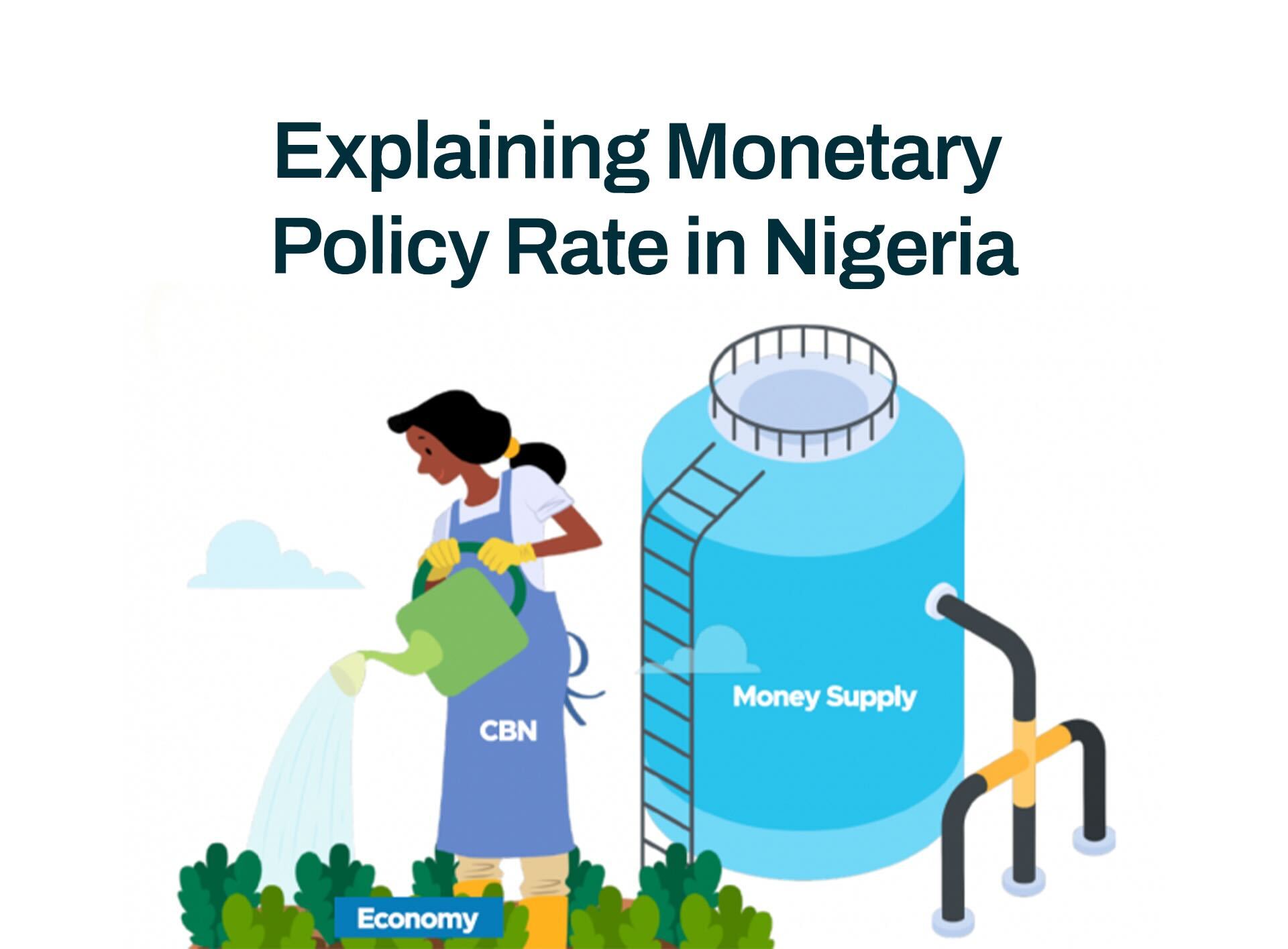Table of Contents
- What is monetary policy
- How does monetary policy work
- What is the Monetary Policy Committee, and what is its role in the Central Bank?
- What is Monetary Policy rate?
- How CBN uses The Monetary Policy Rate (MPR)
- Important Monetary Policy Terms
- What is the current CBN monetary policy rate (MPR)?
- How CBN's Monetary Policy Rate Affects You
- How CBN's Monetary Policy Rate Affects Foreign Investments
- FAQs
What is monetary policy?
Monetary policy is a set of tools a nation's central bank uses to control the overall money supply, promote economic growth, and employ strategies such as revising interest rates and changing bank reserve requirements.
In Nigeria, the Central Bank implements monetary policy, regulates the exchange rate regulation, and generally manages the financial sectors.
Here is a quick breakdown of the key roles and responsibilities of the Central Bank of Nigeria (CBN) in managing Nigeria’s economy:
- Issuing Legal Tender Currency: The CBN has the sole authority to issue Nigeria's official currency (Naira), ensuring its proper distribution and control within the economy.
- Maintaining External Reserves: The CBN manages Nigeria’s foreign exchange reserves, which stabilise the Naira's value in the global market and ensure the country can meet its international obligations.
- Safeguarding the International Value of the Currency: By managing external reserves and exchange rates, the CBN works to keep the Naira stable and valuable in international trade.
- Promoting Monetary Stability and a Balanced Financial System: The CBN implements monetary policies, such as controlling interest rates and money supply, to ensure economic stability and a healthy financial sector.
- Acting as Banker and Adviser to the Federal Government: The CBN provides banking services to the government, manages its accounts, and offers financial advice on policies affecting the economy.
- Lender of Last Resort to Banks: When banks face financial difficulties, the CBN steps in to provide emergency funding to prevent financial collapse and maintain stability in the banking system.
Updated: CBN raises interest rate to 27.5%
- The Central Bank of Nigeria (CBN) raised the country's interest rate by 25 basis points, from 27.25% in September to 27.50% in November 2024.
- CBN Governor Olayemi Cardoso announced the decision at a press briefing after the 298th Monetary Policy Committee (MPC) meeting in Abuja.
- Cardoso stated that the MPC unanimously agreed to the rate hike to address inflation, which stood at 33.87% in October 2024.
- The Cash Reserve Ratio was increased:
- From 45% to 50% for deposit money banks.
- From 14% to 16% for merchant banks.
- The committee retained:
- The liquidity ratio at 30%.
- The asymmetric corridor at +500/-100 basis points around the Monetary Policy Rate (MPR).
How does monetary policy work?
Monetary policy is a crucial strategy for managing the supply of money within an economy, primarily conducted through a country's central bank.
This central authority, such as the Central Bank, has significant power to influence economic conditions by adjusting the federal funds rate.
The federal funds rate is the interest rate banks lend to each other, serving as a benchmark for other interest rates in the economy.
When the central bank changes this rate, it affects banks' cost of borrowing, which subsequently impacts the interest rates offered to consumers and businesses.
As the central bank alters the federal funds rate, it creates a ripple effect throughout the financial system.
For instance, if the central bank decides to lower the rate, borrowing becomes more affordable, encouraging individuals and businesses to take out loans and invest in various economic activities.
This increase in spending and investment can help stimulate economic growth.
Conversely, raising the rate makes borrowing more expensive, which can slow down economic activity and curb inflation during periods of rapid growth.
The general aim of monetary policy is to act as a guiding force in the economy, moderating economic fluctuations to maintain stability.
What is the Monetary Policy Committee, and what is its role in the Central Bank?
The CBN Monetary Policy Committee (MPC) is a group within the central bank that makes decisions about the country’s monetary policies.
This committee meets every two months to review the economy’s performance and decide on important financial matters, such as setting interest rates, to help the central bank achieve its objectives.
The MPC is made up of several key members:
- The Governor of the Bank, who serves as the Chairman.
- The four Deputy Governors of the Bank.
- Two members from the Bank’s Board of Directors.
- Three members appointed by the President
What is monetary policy rate?
The Central Bank of Nigeria's (CBN) Monetary Policy Rate (MPR) serves as a benchmark interest rate or price rate for the economy.
It provides a signal from the CBN about their assessment of economic conditions and their intentions for monetary policy.
By adjusting this rate, the CBN influences the cost of borrowing throughout the financial system, which affects everything from bank loans to investment decisions.
When the CBN raises the MPR:
- Borrowing becomes more expensive.
- This can help cool down an overheating economy or combat inflation.
Conversely, when the CBN lowers the MPR:
- Borrowing tends to become cheaper.
- This can potentially stimulate economic activity during slowdowns.
Banks and other financial institutions often use the MPR as a reference point when setting their own interest rates for loans and savings products.

How CBN uses The Monetary Policy Rate (MPR)
The Central Bank of Nigeria (CBN) uses the Monetary Policy Rate (MPR) to manage the economy by controlling the amount of money available for borrowing.
You can think of the CBN Monetary Policy Rate as adjusting the thermostat in a room.
The central bank sets the thermostat to maintain a comfortable temperature for the economy.
If the room gets too hot (representing high inflation), the central bank will lower the temperature by raising the MPR, which cools things down by making borrowing more expensive.
Conversely, if the room feels too cold (indicating a sluggish economy), the central bank will raise the temperature by lowering the MPR, making borrowing cheaper and encouraging more activity.
This way, the CBN ensures that the economic environment remains balanced and comfortable.
Important Monetary Policy Terms
Here’s an explanation of four essential monetary policy terms to help you understand how Monetary Policy generally works:
1. Monetary Policy Rate (MPR)
The Monetary Policy Rate (MPR) is the interest rate set by a country's central bank that influences how much banks charge each other for loans.
It serves as a benchmark for other interest rates in the economy, affecting everything from loans to savings.
2. Asymmetric Corridor
The Asymmetric Corridor is a range around the MPR that defines the interest rates at which banks can borrow from and lend to the central bank.
It is called "asymmetric" because the upper and lower limits of the corridor are not equal.
This means that the cost for banks to borrow money (the upper limit) and the interest they earn on excess reserves (the lower limit) can differ significantly.
This structure allows the central bank to manage liquidity in the banking system more effectively and influences the flow of money in the economy.
3. Cash Reserve Ratio (CRR)
The Cash Reserve Ratio (CRR) is the percentage of a bank's total deposits that must be held in reserve with the central bank, rather than being lent out.
This reserve requirement helps ensure that banks maintain enough liquidity to meet customer withdrawals and obligations.
A higher CRR means that banks have less money available to lend, which can help control inflation, while a lower CRR increases the amount of money available for lending, stimulating economic growth.
4. Liquidity Ratio
The Liquidity Ratio is a measure of a bank's ability to meet its short-term financial obligations.
It indicates the proportion of liquid assets (like cash and easily sellable securities) to its short-term liabilities (like deposits).
A higher liquidity ratio means a bank has a greater ability to cover its short-term debts, ensuring stability and reducing the risk of insolvency.
Central banks often set minimum liquidity ratio requirements to ensure the financial system remains healthy and resilient.

CBN Monetary Policy Rate Decisions in 2024
These are the key policies the Central Bank of Nigeria has made regarding the monetary policy in 2024:
February 26-27, 2024
- Raised the MPR from 18.75% to 22.75%.
- Adjusted the asymmetric corridor to +100/-700 basis points around the MPR.
- Increased the CRR from 32.5% to 45%.
- Kept the Liquidity Ratio at 30%.
March 25-26, 2024
- Increased the MPR from 22.75% to 24.75%.
- Adjusted the asymmetric corridor to +100/-300 basis points around the MPR.
- Retained the CRR at 45%.
- Raised the CRR for Merchant Banks from 10% to 14%.
- Maintained the Liquidity Ratio at 30%.
May 20-21, 2024
- Raised the MPR by 150 basis points to 26.25% from 24.75%.
- Retained the asymmetric corridor around the MPR at +100/-300 basis points.
- Held the CRR for Deposit Money Banks at 45%.
- Kept the Liquidity Ratio at 30%.
July 22-23, 2024
- Increased the Monetary Policy Rate (MPR) by 50 basis points to 26.75% from 26.25%.
- Changed the asymmetric corridor around the MPR to +500/-100 from +100/-300 basis points.
- Kept the Cash Reserve Ratio (CRR) for Deposit Money Banks at 45% and for Merchant Banks at 14%.
- Maintained the Liquidity Ratio at 30%.
What is the current CBN monetary policy rate (MPR)?
The Monetary Policy Committee (MPC) of the Central Bank of Nigeria (CBN) met during the last week of September, 2024 and decided to increase the Monetary Policy Rate (MPR), which is the main interest rate the central bank uses to influence the economy.
They raised the MPR by 50 basis points (0.50%) from 26.75% to 27.25% because they were still concerned about ongoing inflation despite a slight decrease in inflation rates in July and August.
Along with this increase, the CBN kept the asymmetric corridor around the MPR at +500/-100 basis points.
They also raised the Cash Reserve Ratio (CRR) for deposit money banks (DMBs) was raised from 45% to 50% and 14% to 16% for Merchant Banks (MBs).
The Liquidity Ratio (LR) remained unchanged at 30%.
This was the fifth consecutive time the MPC has increased the interest rate, bringing the total increase to 8.5% under the current leadership.
How CBN's Monetary Policy Rate Affects You

A change in CBN's Monetary Policy Rate affects you in two ways:
- Interest Rates and Borrowing Costs
- Savings and Investments Costs
1. Interest Rates and Borrowing Costs
When the CBN changes the interest rates, it affects how much banks charge you for loans.
If interest rates increase, loans for things like houses, cars, or personal needs become more expensive, meaning you’ll pay more each month.
If rates go down, borrowing costs less, which could help you save money on your loans.
2. Savings and Investment Costs
- Savings: If the CBN raises interest rates, you can earn more interest on the money you keep in the bank. This might motivate you to save more money and spend less right now.
- Investment Costs: Changes in interest rates can also make some investments more attractive. For example, when rates are higher, investing in bonds may give you better returns than stocks, influencing where you choose to invest your money.
In short, when the CBN adjusts interest rates, it can impact your daily spending and your financial plans for the future.
How CBN Monetary Policy Rate Affects Foreign Investment

The Central Bank of Nigeria's (CBN) Monetary Policy Rate (MPR) can significantly influence foreign investment in several ways:
1. Cost of Borrowing
- Higher MPR: When the CBN raises the MPR, it increases the cost of borrowing for businesses, including foreign investors. This can make it less attractive for foreign companies to invest in Nigeria because they may face higher costs to finance their operations or projects.
- Lower MPR: If the MPR is lowered, borrowing becomes cheaper. This can encourage foreign investors to enter the market, as they can finance their investments at lower costs.
2. Attractiveness of Investment Returns
- Interest Rates and Returns: Foreign investors often compare potential investment returns across different countries. If Nigeria offers higher interest rates due to an elevated MPR, fixed-income investments (like bonds) may become more appealing compared to other markets. This could attract foreign capital seeking better returns.
- Currency Stability: A higher MPR can help stabilize the Nigerian currency by attracting foreign capital. If investors believe that the interest rates are high enough to provide a positive return, they may be more inclined to invest, which can help strengthen the naira and reduce currency risk.
3. Economic Stability
- Inflation Control: By managing inflation through adjustments to the MPR, the CBN helps create a stable economic environment. A stable economy is generally more attractive to foreign investors because it reduces risks associated with investing in volatile markets.
- Investor Confidence: Consistent and transparent monetary policy helps build investor confidence. Foreign investors may be more willing to invest if they see that the CBN is actively managing the economy through appropriate interest rate adjustments.
4. Market Perception
- Expectations and Sentiment: Changes in the MPR can affect market perceptions and investor sentiment. If investors believe that the CBN's policies will lead to a favourable business environment, they may be more likely to invest. Conversely, if they view rate hikes as a sign of economic trouble, it may deter investment.
5. Exchange Rate Impact
- Foreign Exchange Rates: Changes in the MPR can influence the exchange rate of the Nigerian naira. A stable or appreciating currency due to high interest rates can make Nigeria a more attractive destination for foreign investments. Investors want to avoid currency risk, so a strong naira can boost their confidence in investing in the country.
FAQs
Q: What is the meaning of the CBN monetary policy rate?
A: The CBN Monetary Policy Rate (MPR) is the interest rate set by the Central Bank of Nigeria that serves as a benchmark for lending rates in the economy.
It is used to influence the cost of borrowing and the overall money supply in the economy.
Q: How does MPR affect inflation?
A: When the CBN adjusts the MPR, it impacts borrowing costs. If the MPR is increased, it typically leads to higher interest rates on loans, reducing consumer spending and investment.
This can help control inflation by slowing down the economy. Conversely, lowering the MPR can stimulate spending and investment, potentially increasing inflation if demand outstrips supply.
Q. What is the monetary rate policy?
A: Monetary policy refers to the actions a central bank, such as the CBN, takes to manage the money supply and interest rates in the economy. The goal of monetary policy is to achieve macroeconomic objectives such as controlling inflation, stabilising the currency, and fostering economic growth.
Q: How does MPR affect banks?
A: The MPR influences the interest rates that banks charge for loans and offer for deposits. A higher MPR generally leads to increased borrowing costs for consumers and businesses while also encouraging banks to offer higher interest rates on savings. This affects banks’ profitability and how they lend to customers and businesses.
Q: How does monetary policy rate affect inflation in Nigeria?
In Nigeria, the monetary policy rate affects inflation by influencing borrowing costs and consumer spending.
When the CBN raises the MPR, it can help reduce inflation by making loans more expensive, which discourages spending. Conversely, lowering the MPR can stimulate demand and potentially lead to higher inflation if not managed carefully.
Q: What is the relationship between monetary policy and inflation?
A: Monetary policy and inflation are closely related. Central banks use monetary policy to control inflation by adjusting interest rates and managing the money supply. By increasing interest rates, central banks can reduce inflationary pressures; lowering rates can stimulate economic activity, which may lead to higher inflation.
Q: What is Monetary Policy Rate (MPR)?
A:The Monetary Policy Rate (MPR) is the key interest rate set by a central bank that guides the cost of borrowing in the economy. It serves as a benchmark for other interest rates and influences economic activity and controls inflation.
Q: What is an Asymmetric Corridor?
A: The Asymmetric Corridor refers to the range of interest rates set by the central bank around the MPR, where the upper limit (the discount rate) is higher than the lower limit (the interest rate paid on deposits). This creates a band within which banks can borrow and lend, providing flexibility in monetary policy.
Q: What is Cash Reserve Ratio (CRR)?
A: The Cash Reserve Ratio (CRR) is the percentage of a bank's total deposits that must be held in reserve and not lent out. The central bank mandates this to ensure liquidity and stability in the banking system. A higher CRR means banks have less money available for lending.
Q: What is Liquidity Ratio?
The Liquidity Ratio is a measure of a bank's ability to meet its short-term obligations. It is the ratio of liquid assets to total deposits, ensuring that banks have enough liquid assets available to cover withdrawals and other short-term liabilities. The central bank often sets minimum liquidity ratio requirements to promote financial stability.
Q: What is the CBN interest rate?
A: As of October 2024, the CBN interest rate is 27.25%.
Disclaimer: This article was written to provide guidance and understanding. It is not an exhaustive article and should not be taken as financial advice. Obiex will not be held liable for your investment decisions.




